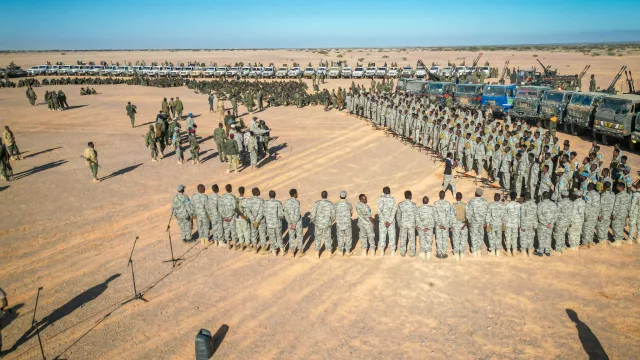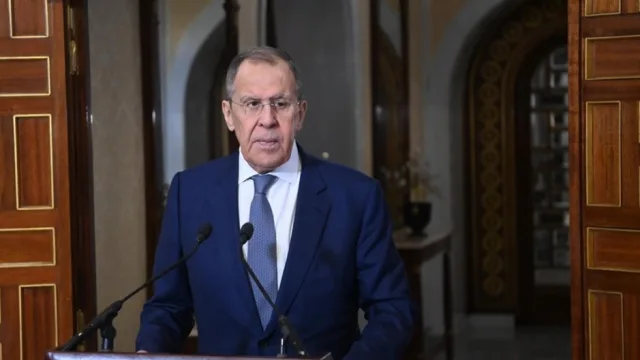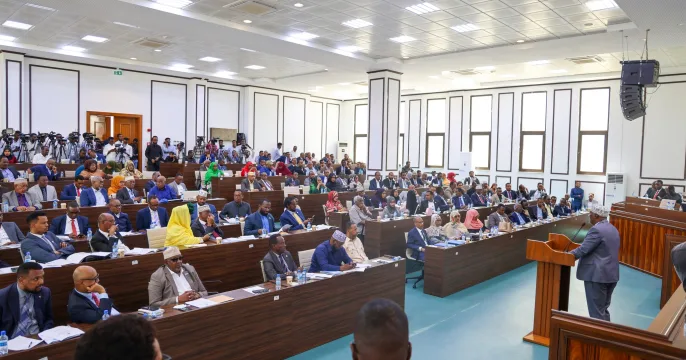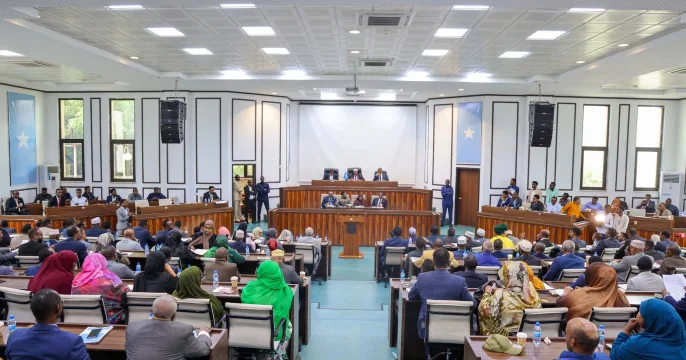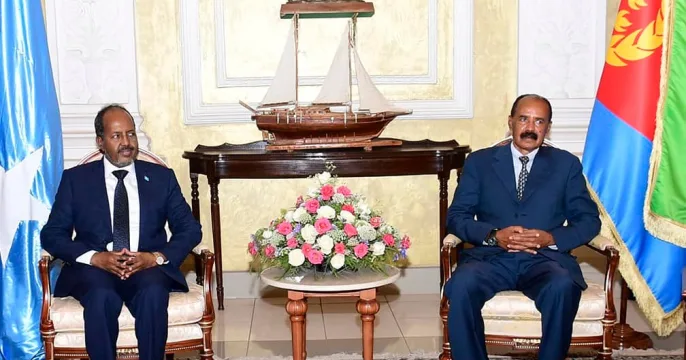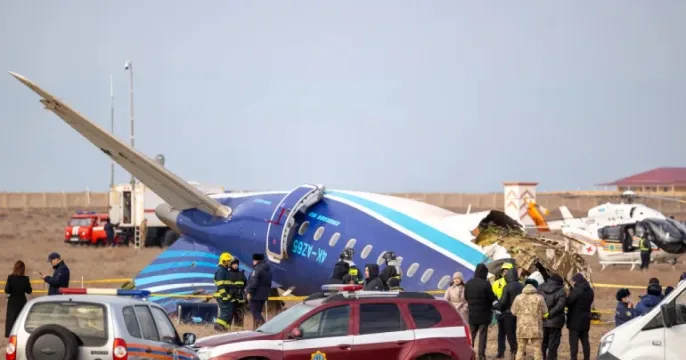On 25 November 2023, the Ministry of Education, Culture and Higher Education (MoECHE) of the Federal…
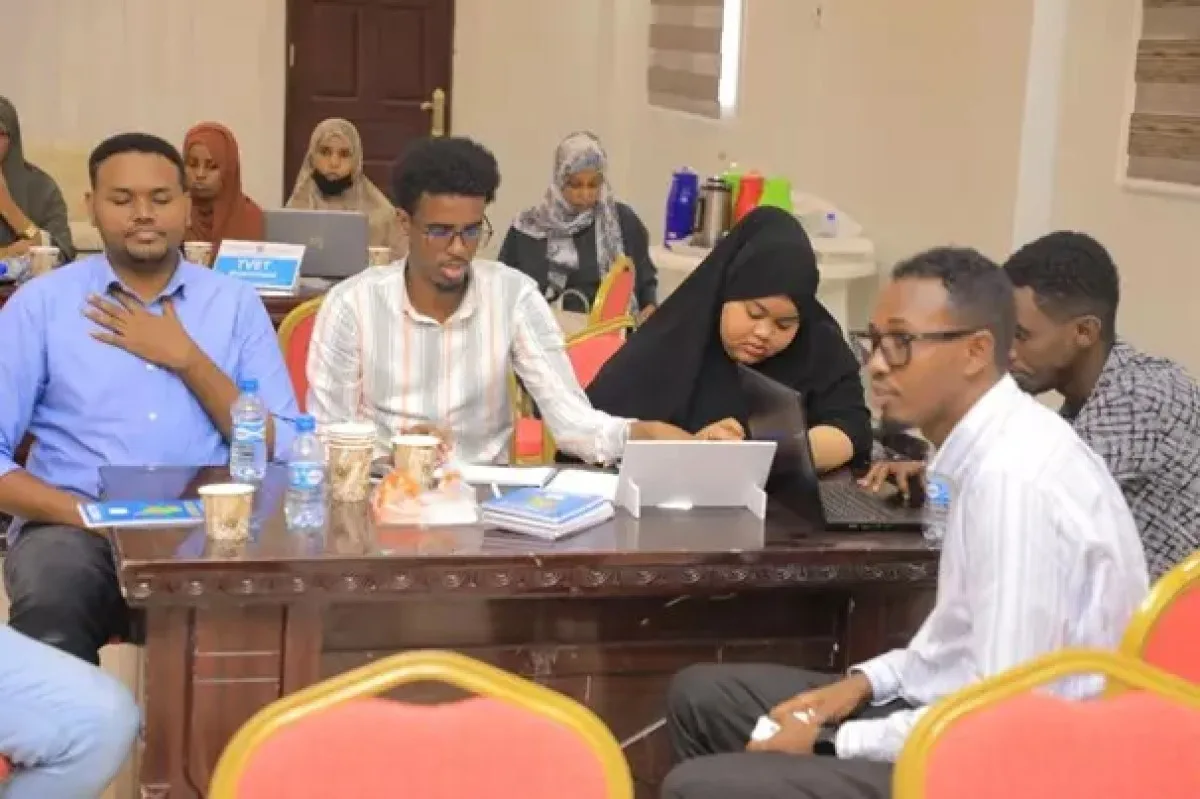
On 25 November 2023, the Ministry of Education, Culture and Higher Education (MoECHE) of the Federal Government of Somalia, with support from the Unit for Technology and AI in Education within the Future of Learning and Innovation Team, Education Sector of UNESCO Headquarter and UNESCO Office in Nairobi, organized a workshop on digital learning policies. This event, held both physically in Mogadishu and online, moved the needle on the formation of the first national ICT in Education Policy and Masterplan of Somalia.
Somalia has faced substantial educational challenges due to civil war and political instability since the 1990s. Disruptions caused by the civil war in 1990 led to widespread displacement, destruction of schools, and a sharp decline in literacy rates. The COVID-19 pandemic acted as a catalyst, prompting the Ministry to innovate rapidly with distance learning programs, revealing challenges like limited internet access and teacher training deficiencies.
The hybrid workshop, co-organized by MoECHE and UNESCO, brought together key stakeholders, including Mr Mohamed Abbi Hassan, Director General of MoECHE, 30 in-person policy-makers from the MoECHE and from the Ministries of Education of the Federal Member States, UNESCO representatives, and an expert who is commissioned by UNESCO to provide technical support, Dr Shafika Isaacs. The objective was to refine Somalia’s ICT in Education Policy and Masterplan, addressing critical issues such as leadership, infrastructure, digital literacy, and teacher skills, and reach collective agreement.
Strengthening ICT-enabled education
In his remarks, Mr Toshiyuki Matsumoto, Education Programme Specialist at UNESCO Regional Office for Eastern Africa, addressed global challenges in ICT-enabled education, exacerbated by the COVID-19 pandemic which left an estimated 590,000 Somali children out of school. He emphasized the collaboration with Somalia as part of UNESCO’s broader support to the development and implementation of national ICT in education policies in over 60 Member States, aligning with the Somalia National Education Sector Strategic Plan 2022-2026.
Under the guidance of Dr Shafika Isaacs, the workshop delved into sessions on the background and overview of Somalia’s ICT in Education policy. Group discussions focused on priority projects within the masterplan, covering leadership, ICT infrastructure, a national ICT portal, digital literacy, and teacher skills. The plenary discussion on the master plan and resourcing strategies provided a platform for participants to share perspectives.
UNESCO’s integral support for Somalia’s ICT in Education Policy development was emphasized throughout the workshop. Dynamic activities led by Dr Isaacs facilitated a comprehensive review of the latest draft, with participants engaging in group discussions on priority projects. Their valuable feedback will be incorporated into the final document, reflecting a commitment to harnessing technology’s potential to enhance education in Somalia.
The current draft of the ICT in Education Policy and Masterplan, serving as a comprehensive framework, is the culmination of collaborative efforts between MoECHE, UNESCO, and various stakeholders. This framework explores Somalia’s socio-economic status, ICT, and education landscape. It outlines specific policy elements, implementation mechanisms, and the ICT in Education Master Plan for 2023-2028. The outcomes of the workshop will be integrated into the final draft, with a final review expected in the first quarter of 2024.
The workshop provided a platform for stakeholders to contribute to the development of a comprehensive and context-specific ICT in Education Policy and Masterplan for Somalia. The recommendations and inputs gathered during the workshop will guide the MoECHE and UNESCO in refining and finalizing the policy. The successful workshop stands as a crucial step forward in advancing digital literacy, 21st-century skills, and educational development, and, beyond the workshop, will contribute to building a more inclusive and resilient learning environment in Somalia.
